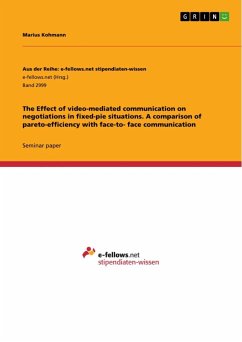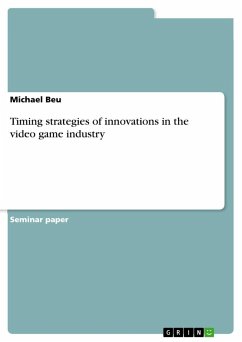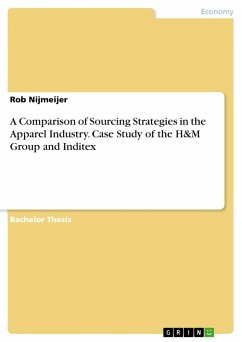Seminar paper from the year 2018 in the subject Business economics - Miscellaneous, grade: 1,3, Technical University of Munich, language: English, abstract: In today's business world, you must be tough, smart and witty in order to succeed and to satisfy your superior. Oftentimes you go into a negotiation only knowing the target price you have to achieve and not looking for a valuable compromise. Chasing only after the biggest possible share of this fixed-pie and assuming the negotiator on the other side of the table does so too, hinders you from being a successful negotiator.Furthermore, in sales negotiations you often try to achieve the highest selling price possible and if the other party cannot agree on a price close to that point, you sell the object for the minimum price that was given to you, so you will still satisfy your superior. If you cannot not manage to sell for the minimum price, you decline the offer, stop the negotiations and chose your 'best alternative to negotiated agreement' (BATNA). Unfortunately, many people go into negotiations not even knowing their own BATNA. In this case, a negotiator might sell the object for a lower price than the one that could have achieved without this negotiation. Good negotiators do not only know their own BATNA, they also have an approximate idea about the BATNA of the opposing party, so they can develop their strategy based on that knowledge and will more likely succeed in the negotiation.The outcomes of negotiations do not only depend on the alternatives of each party or the asymmetric distribution of information, but also on the communication method the parties use. Depending on the position of each party it is more efficient to use a traditional face-to-face communication method or to make use of digital support, like video-mediated communication methods (VMC, i.e. Skype, facetime, etc.).We would like to improve (integrative) negotiation outcomes by addressing the following question: does the use of VMC lead to more pareto-efficient results in fixed-pie situations? As technology becomes more and more advanced and business is mostly conducted within global environments, the way and method of communication becomes more relevant in the everyday economy.Our paper tries to answer this question in the following way: first, we introduce the theory of with current aspects of digitalization. From the established theory, we derive three hypotheses and present our research design. After a brief discussion of the potentials and limitations of our experiment, we close with a short summary and an outlook to potential follow-up research.
Bitte wählen Sie Ihr Anliegen aus.
Rechnungen
Retourenschein anfordern
Bestellstatus
Storno








